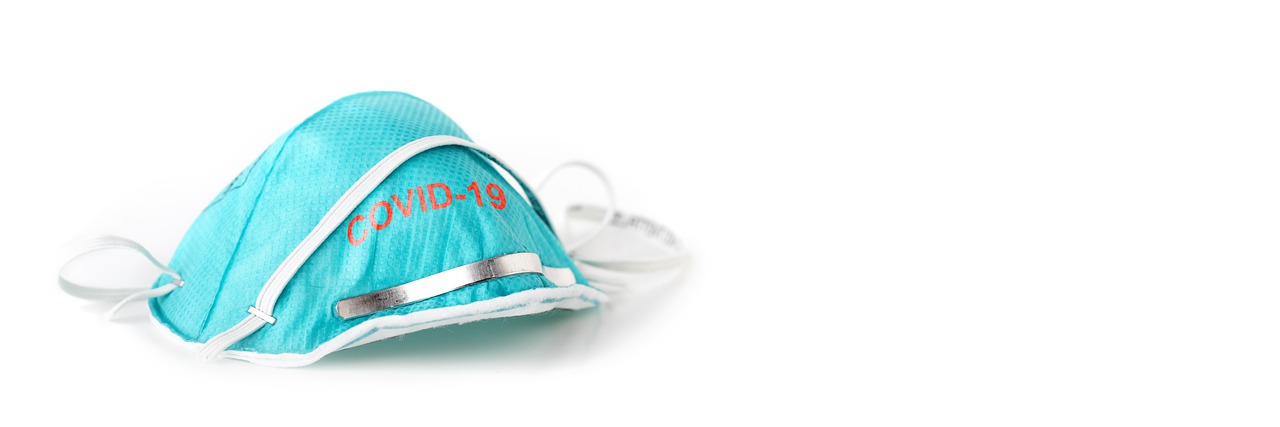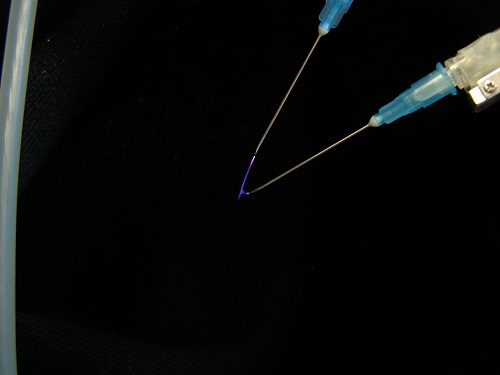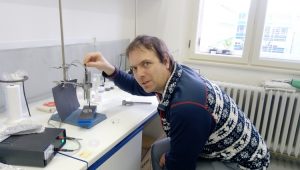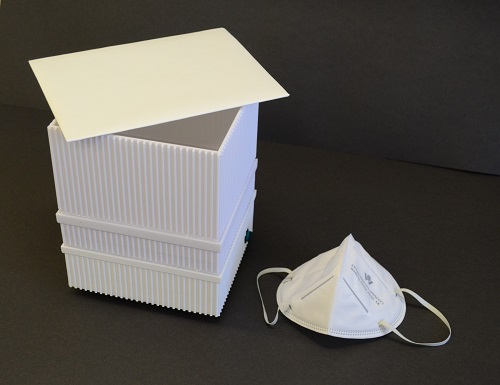
The COVID-19 pandemic has identified a clear need for the efficient decontamination of surfaces and objects of daily use to reduce the transmission of the virus through smear infection. The response has come from a research project funded by two research sponsors: FWF of Austria, and the Czech Science Foundation. It was the first international urgent funding project in late 2020. Its goal is to offer a safe, environmentally friendly, and affordable alternative of surface decontamination compared to current options.
The Czech-Austrian research project explores decontamination, recycling, and reuse of heat or liquid-sensitive objects, for example highly effective face masks.
The goal of the project is to explore Cold Atmospheric Plasma technology (CAP) and its further application, and the effort involves teams of Thomas Lion of St. Anna Children’s Cancer Research in Vienna, and Vladimír Scholtz of the University of Chemistry and Technology (UCT) in Prague.
The project explores the effectiveness of CAP, as an innovative technology, against selected human respiratory viruses, such as the SARS-CoV-2, influenza A, adenovirus, and rhinovirus.

A Fluorescent Gas with Disinfecting Power
CAP is an ionized, fluorescent gas. In principle, it is any electric discharge, a tiny spark ranging from a few millimetres to a few centimetres in size. Plasma generators are used to produce plasma.
“We developed a simple generator to decontaminate scarce FFP respirators as early as the spring of 2020, when the pandemic started. We proved it effective against the coronavirus, and we verified that the filtration capability of the respirators is not reduced by the plasma. We named it Corona Spark against the Corona Virus, and released all documentation for everyone’s use,” says Vladimír Scholtz.
“I am delighted we have started successfully to work together with our Austrian partners, which makes it possible for us to further develop the application of plasma against microorganisms. St. Anna Children’s Cancer Research Centre works with viruses primarily, and we have explored low-temperature plasma and its microbicidal effect (it kills microscopic organisms) for over a decade,” adds Vladimír Scholtz on part of Czech scientists.
Please watch this video this video to find out how the plasma generator works.

Safe and Environmentally Friendly Method of Decontamination
Objects which cannot be decontaminated by heat or by liquid disinfectants may present a higher risk of virus transmission. The availability of alternative methods such as CAP is critical to prevent the epidemic spread of viral or microbial pathogens.
The effectiveness of CAP in bacterial disinfection is already well-established, and more recent studies have proven it suitable to deactivate viruses. “We need to establish new findings about the effectiveness of CAP to be able to design new and reliable appliances optimised for various areas of application,” says Vladimír Scholtz.
The outcomes of the research co-funded by the Czech Science Foundation and FWF of Austria are going to help introduce CAP as a safe and affordable alternative to decontamination methods deployed at present. In addition, getting to understand the mechanisms deactivating viruses through CAP will also help the researchers learn the strengths of this technology, and to tackle any weaknesses before the technology is released for a broad application. “Our goal is to see primarily healthcare providers using the plasma generators for the disinfection of objects and surfaces on regular basis. The advantage is that the manufacturing costs are not going to be extremely high, the generators should come in the single-digit or low double-digit euro amounts,” says Vladimír Scholtz of UTC in conclusion.

Cross-Border Cooperation
Titled “Decontamination of Sensitive Materials by Low-Temperature Atmospheric Plasma for Effective and Affordable Virus Elimination”, this international project has been funded through the “Urgent Funding SARS-CoV-2” programme. The project was recommended for implementation by FWF (Fonds zur Förderung der wissenschaftlichen Forschung) of Austria in the Lead Agency evaluation regime, and is being co-financed by FWF and the Czech Science Foundation.
“This project is a showcase of a promising start of both cross-border and interdisciplinary cooperation. As a result of the Czech Science Foundation’s quick response to the call by FWF of Austria, teams of Czech and Austrian scientists were able to present joint project proposals responding to the outbreak of the COVID-19 pandemic between April and December last year. There are additional joint projects dealing with the pandemic under consideration at the moment. They will be launched as soon as they are recommended for funding,” says Jaroslav Koča, President of the Czech Science Foundation.
The Czech Science Foundation continues developing international cooperation opportunities constantly. At present, the Foundation works together with institutions from Germany, Austria, Poland, Slovenia, Switzerland, Taiwan, Russia, South Korea, and São Paulo (Brazil). In 2020, the Czech Science Foundation joined WEAVE, an initiative which is going to open cross-border cooperation to additional countries in Europe.
Author: Renata Třísková, M.A.